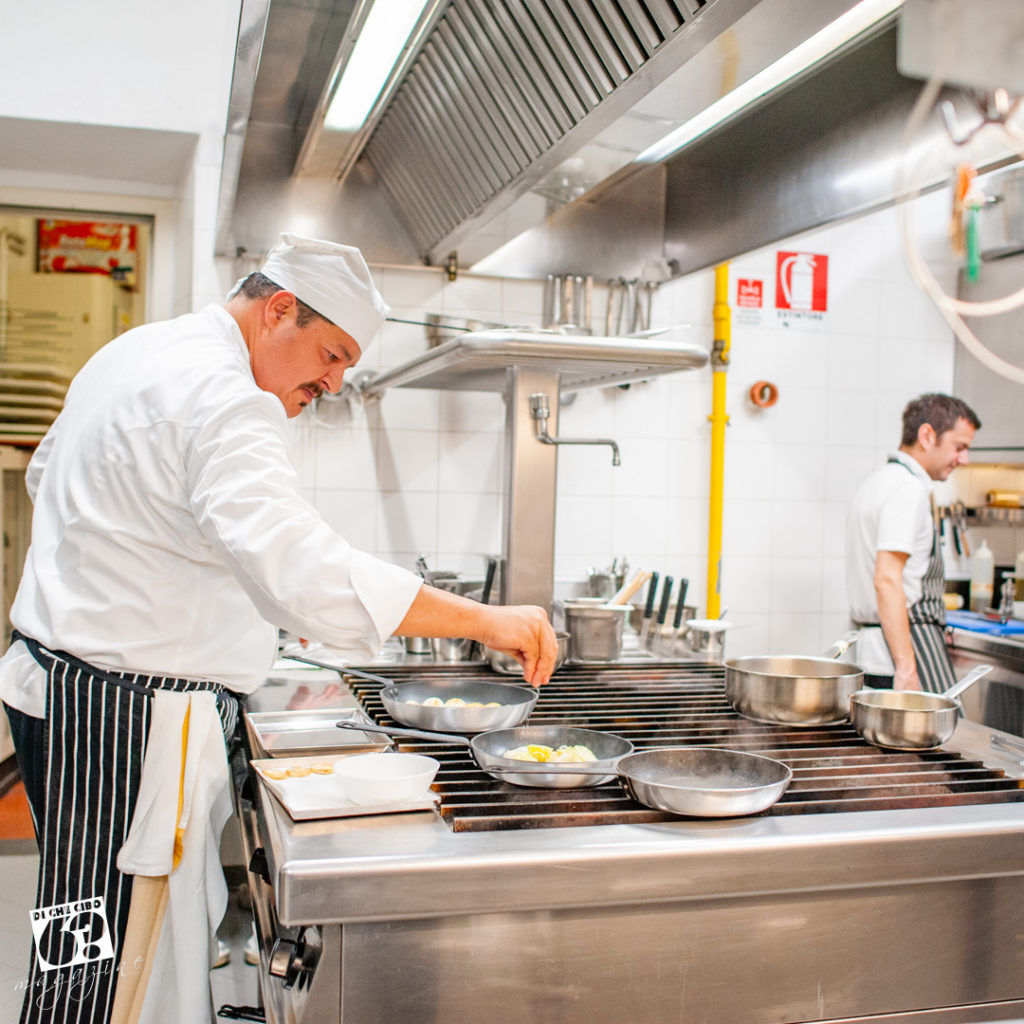Filippo Saporito / The five senses in the kitchen
There is the scent of freshly cut grass in the air, the grass of the magnificent gardens of Villa Bardini, on Costa S. Giorgio, overlooking Florence. The Villa takes its name from...
There is the scent of freshly cut grass in the air, the grass of the magnificent gardens of Villa Bardini, on Costa S. Giorgio, overlooking Florence. The Villa takes its name from...
Officina Profumo-Farmaceutica di Santa Maria Novella in Florence is one of the oldest pharmacies in the world, founded by the Dominican friars in 1221 and open to the public since...
It’s a sunny day; the hot coffee is excellent. We are sitting next to the window inside the bar where we agreed to meet for our interview. The smile of Anna Maria Visconte,...
There is the scent of freshly cut grass in the air, the grass of the magnificent gardens of Villa Bardini, on Costa S. Giorgio, overlooking Florence.
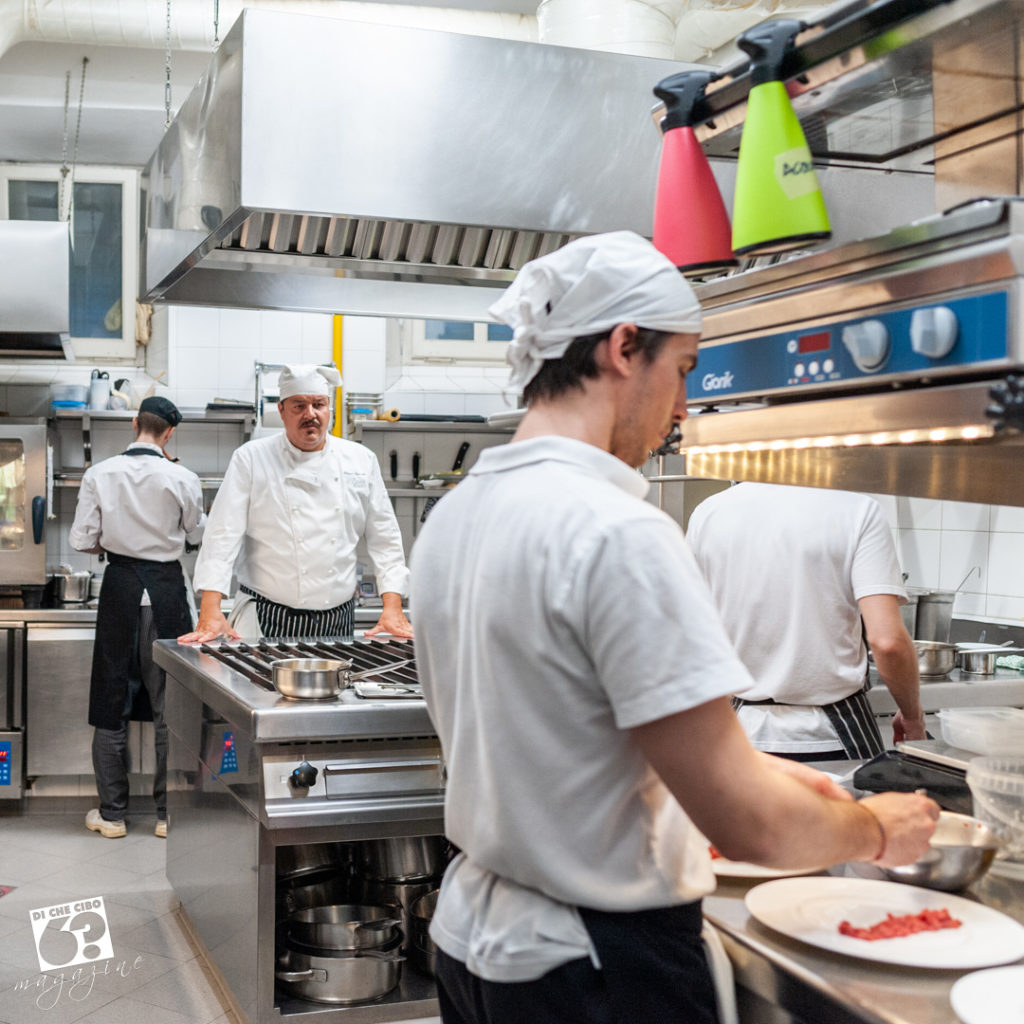
The Villa takes its name from Stefano Bardini, the “Prince of antique dealers”, who bought it in 1913, making this 17th century Villa his retirement place, despite the fact that his real home and his Gallery were in Piazza dei Mozzi and Via S Niccolò, further downhill, near the Arno, nowadays a prestigious museum that houses his private collection.
The panoramic terrace of the Leggenda dei Frati overlooks the city, right in the lower part of the Villa, to the side of the gardens.
It is the prestigious restaurant of the starred Chef Filippo Saporito, opened in 2015.
He meets me here and joyfully greets me with his open and captivating smile. We had not seen each other for quite a while.
Filippo Saporito, as well as a famous chef, is also a fine observer, a witty, friendly, spontaneous person, and even a fan of art and rugby.
We start talking, sipping a coffee and tasting two delicious cakes he kindly offers me as we meet.
There is a calm, elegant and sparkling atmosphere in the Legend of the Friars: Saporito surrounds himself with young chefs, a rich, excellent brigade.
He works here with his wife Chef Ombretta Giovannini he met during the years at the Catering Institute in Chianciano.
He immediately speaks about her with passion: “She is very gifted; she is able to prepare fantastic food with just a little flour and two eggs”. As if to say, she was born with the gift of knowing how to combine creativity, skill and talent.
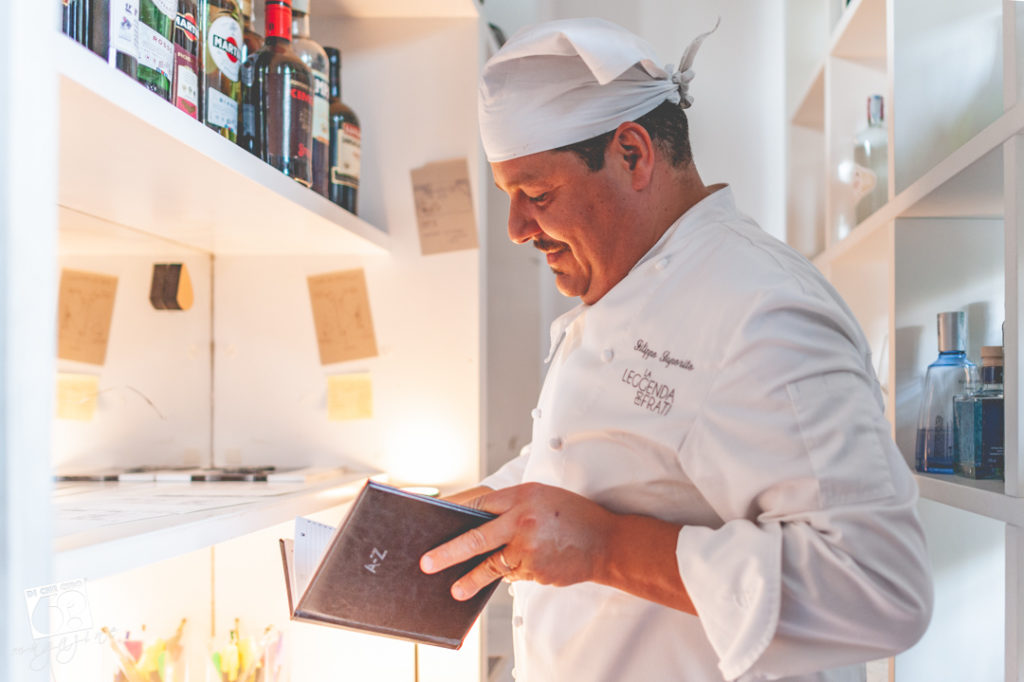
I immediately ask him if, according to him, we perceive food with the five senses, as some psychologists claim, and he promptly answers: “We do perceive with the five senses! Eating is tasting. A chef then needs to accustom the palate to “feel”.
The kitchen today has taken a step forward for the visual aspect. Just think about how important it is to “see” a pleasant dish. The visual aspect is important: the choice of colours, the shape. Consider the green colour: when scalding, vegetables become greener.
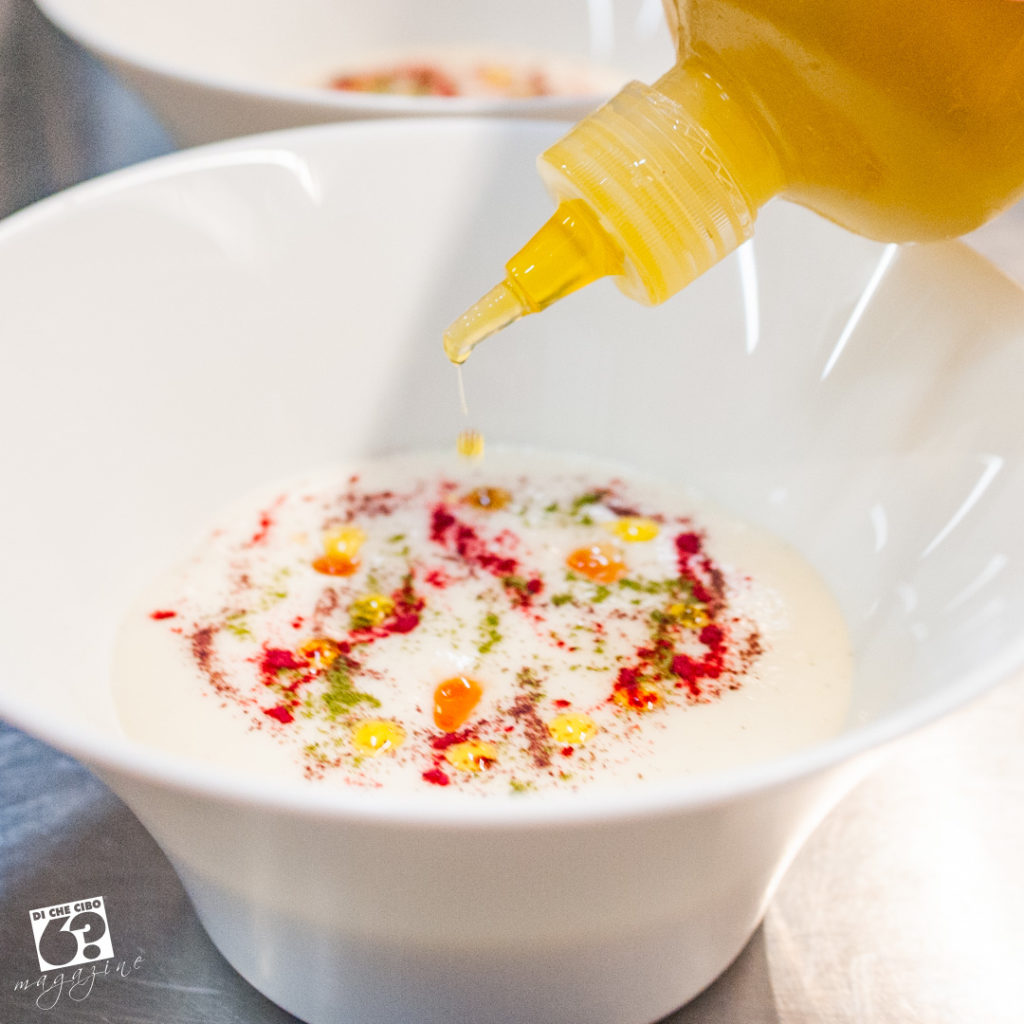
But the taste is fundamental.
I always ask my students if, for example, some of them have ever tasted a raw cauliflower, and the answer is always the same, no, nobody has.
Teenagers lack the joy of their grandmother’s cooking, the aromas and flavours of home cooking, as well as rolling around in a field of daisies, explore the smells and tastes. They need to get accustomed to the basic flavours of the kitchen, to understand if the dishes are too seasoned, to feel the pepper, and spicy food”.
What about the smell?
“Oregano, basil, garlic. The smell of freshly baked bread while you break it. Memories of fragrances perceived when we were children. They enter your mind and never leave you. They are a part of the perception you carry with you for a lifetime.”
The sense of touch?
“ We have just mentioned the cauliflower, touching it is feeling, it is feeling its crunchiness, for example. In cooking, the touch allows you to “understand” if a food is cooked, if the chicken is cooked, such as the fish, and the vegetables. Touch is feeling the bread in your hands as you cut it. You learn to perceive with the hands.
Sight, touch, taste, today it is all about just seeing and less about touching and feeling, but it is the smell that makes you understand if a dish is excellent or not! The sound of cooking is also part of the whole. Look, when cooking, the senses all go together in the relationship with food. And this is something really important to instil in young people ”.
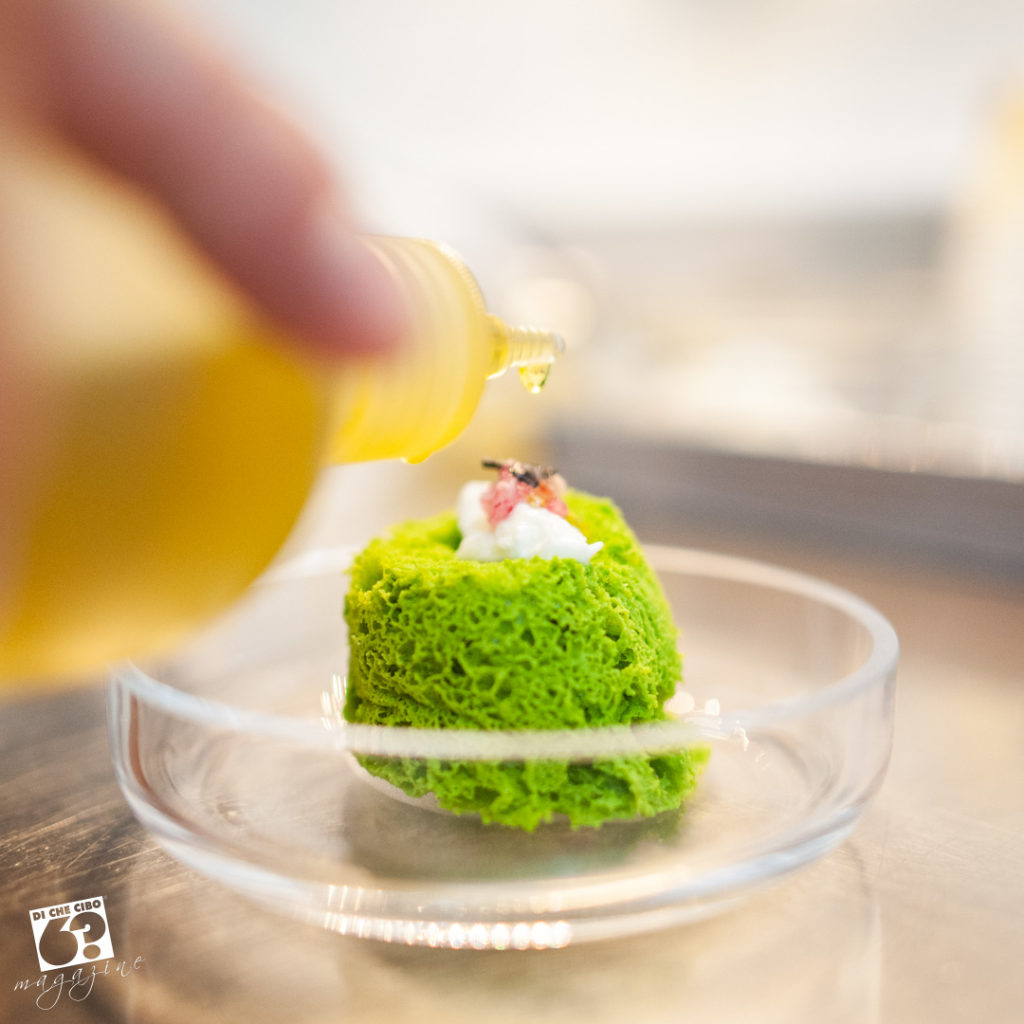
Is there a difference between men and women chefs?
“ The kitchen is a masculine work, by tradition, for the heaviness of the work. However, a woman has a greater sense of smell, and thus a greater touch and delicacy. The quality of sensing tastes is more feminine. A woman has more nuances. Nevertheless, I could not say whether there is either a female cuisine or a male cuisine. Many women chefs have a male touch, and many male chefs have a female touch. I met many female chefs whose dishes could easily have been those prepared by men ”.
Smiling, at the end of our meeting, he tells me, with pride, that he is very happy with his son, who, at twelve, already has a passion for cooking and for rugby, like his father. Life goes on, and with such a Master, the future will be rich in knowledge and rewarding, that is for sure.
“ I am very happy because my son likes the genuine things in life, things that give you real joy ”
